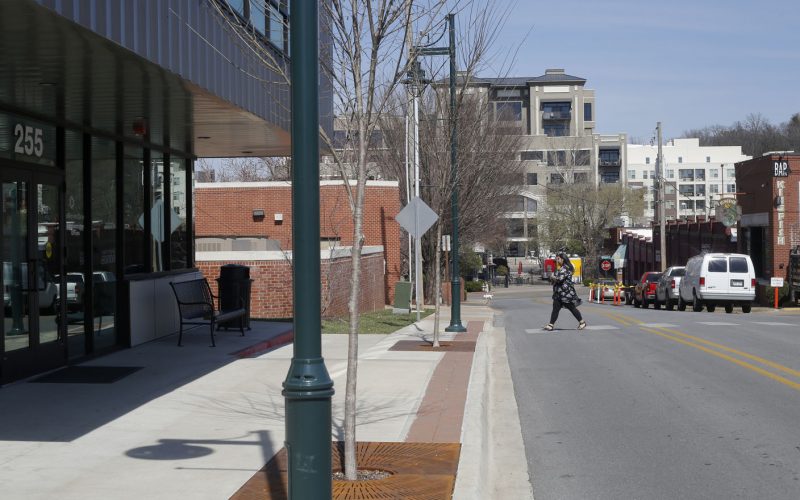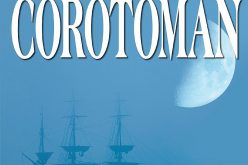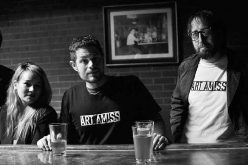Anyone who hasn’t considered the topography of School Avenue downtown probably will as soon as a public art installation springs up in a few months.
The Walton Arts Center, in collaboration with the city and the University of Arkansas Community Design Center, commissioned a topographic map that will go on School Avenue from Dickson to Mountain streets. Nature-themed artist Stacy Levy of Pennsylvania will create the piece. Levy in 2013 made the spiral wetland at Lake Fayetteville, which involved native plants seemingly growing out of the water in a pattern.
Thermoplastic line striping on the street will indicate the topographical contours of the land. Clusters of blue dots at the intersection with Spring Street will show pockets of water that lie underground.
The project serves as part of a $100,000 Our Town grant from the National Endowment for the Arts in 2013. The grant went toward an arts-integrated streetscape design project for School Avenue.
Construction of the Spring Street Parking Deck and Walton Arts Center expansion, along with coordinating with the artist’s schedule, delayed the art project’s start.
It’s not the first time the Walton Arts Center has helped bring to fruition outdoor art that incorporates its surroundings. Livvy Pierce’s installations featuring inspirational phrases crafted in moss popped up last year on buildings and in tucked away places downtown.
Levy’s spiral wetland in 2013 served as part of Artosphere. The topographic map project will as well, leading into the ninth Artosphere festival June 10-23. The event celebrates the intersection of art, music and nature with various projects, performances and events throughout the region. This year’s theme is water.
Levy says she hopes the School Avenue piece will communicate visually what people experience viscerally when walking up and down the street. Numbers will indicate slope on the lines and a class from the university will develop signs showing passers-by what they’re seeing.
“Just because we have streets and grids all over everything doesn’t mean that those natural forms of topography have been done away with. They’re still there,” she says. “I’m trying to bring up that nature underlies the human-made grid of our road system. Nature’s still under that grid and makes us tired when we’re walking up to the library.”
Additionally, the topographic map will serve as a precursor to a planned cultural arts corridor a block away along West Avenue, from the Walton Arts Center down the Razorback Greenway just south of the library. The Walton Family Foundation awarded the city a nearly $1.8 million grant to design the corridor in way that incorporates public art, transportation and entertainment.
Laura Goodwin, vice president of learning and engagement at the Walton Arts Center, says public art projects in general interrupt the trance of everyday life. They don’t require a ticket and anyone can enjoy them, she says.
“It just makes for a richer experience,” Goodwin says. “Our community is a big small town. When you think about the scale of our town and the scale of our arts — we are just so fortunate.”
Programming will run in tandem with the art installation. A water pantry will be displayed in the city’s parking office at the Spring Street deck. Water collected from city streets will sit in the office’s window, showing the deterioration of the water quality over time. Also, a series of guided walks led by Levy and local historian Charlie Alison will include School Avenue. Other walks, called Jane’s Walks after urban planner Jane Jacobs, who advocated for a sense of community through walking together, will be part of the larger Artosphere event.
The topographic map bears similarity to the city-sanctioned tactical urbanism projects in recent months, City Engineer Chris Brown says. Those projects, such as the four-way stop at Center Street and Church Avenue and a modified turn at Rock Street and Mill Avenue, allow residents to use impermanent materials to create street features.
The art won’t affect painted markings on the street for parking, crosswalks or stopping, Brown says. Crews with the city’s Transportation Department will repave School Avenue before the art work gets started, which was on the city’s work list anyway, he says.
“They’ve got several things that they’re doing downtown,” Brown says. “It’s part of the package.”
Resurfacing work should start in April. The art installation is scheduled to begin in May, with an unveiling in late May or early June, weather permitting.






